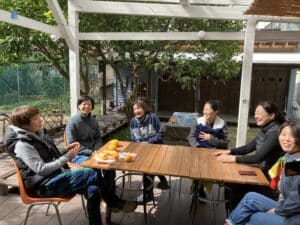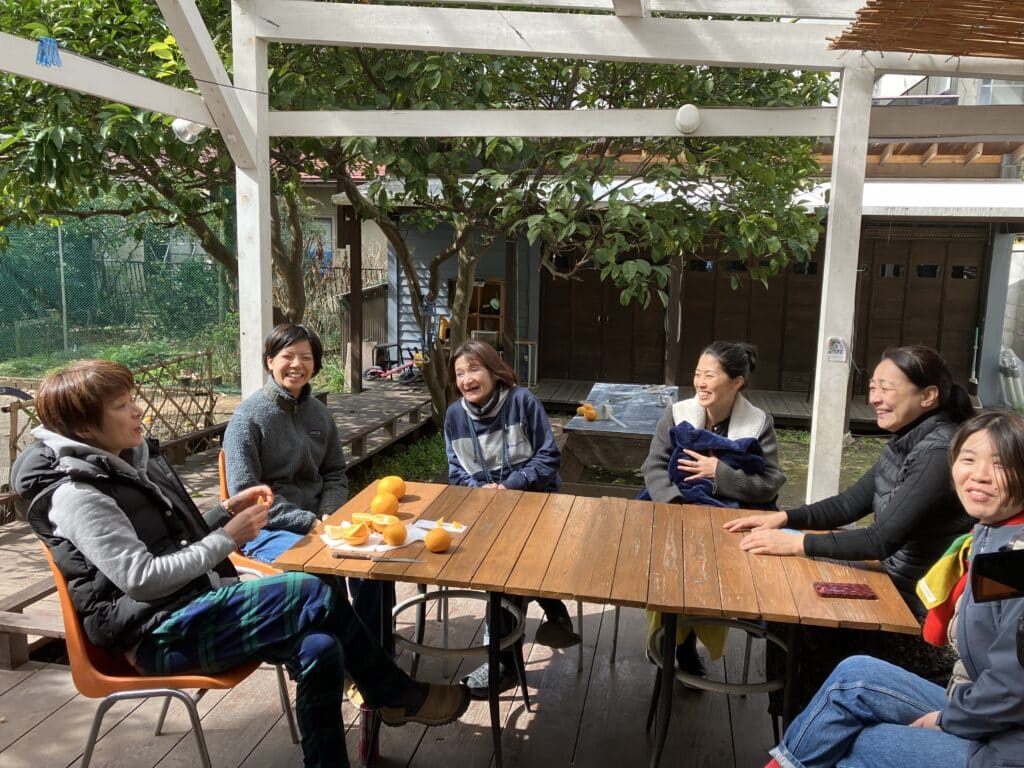Preparing Social Workers in Japan
Martha Mensendiek serves with Doshisha University, Kyoto, Japan
Dear Friends,
Many of my mission letters and my speaking in churches tend to focus on the Bazaar Café ministry. However, my full-time job is to teach in the Department of Social Welfare at Doshisha University and so this time I wanted to share with you some news from the field of social work in Japan.
A top story in the newspaper today featured a challenge Japan is facing with the lack of caregivers for the rapidly aging population. Japan has a highly acclaimed national “Long-term Care Insurance System” which includes in-home services, services in care facilities and community-based services. However, with the declining birth rate there aren’t enough young people to take care of the elderly population needing care. Young people aren’t choosing work as caregivers because it is hard work with low pay. For some time already, Japan has looked to foreign workers to offset the need for workers in this field. In 2017, Japan added a new caregiving visa category and made it possible for foreign students on a study visa to switch to this new work visa, but they must pass a national caregiver exam, which is difficult for foreign students. The news today featured students from Nepal and Myanmar, enrolled in a course that prepares students for a career in the caregiving field and hopefully also to pass the certification exam.

Our social work program at Doshisha has courses to prepare students for two different social work certifications. The general social work certification is for a variety of social work jobs ranging from work with children, the elderly, persons with various disabilities, and with those who are poor. The social work jobs are in various facilities, community centers, hospitals and government offices. Then there is the psychiatric social work certification, which is specific to the field of mental health and is needed for work in clinics and hospitals, or a wide range of facilities supporting those with mental illness.
It may be surprising to know that only about a half of our students decide to take the exam and go on to social work-related jobs. Many of our students choose not to go on to social work jobs because unfortunately they don’t pay well. That workers in a profession that takes care of people are not sufficiently remunerated is a problem in Japan as it is in the US and many other countries. It is sad to see students who are so interested in social work and would be such great social workers have to decide not to pursue their career because of low pay.
I think a society that places more value on social work and caregiving is a kinder and a more stable one. I know that many students who go into professions other than social work are also able to use their social work education, skills and values in their various careers. But I dream of a day when the field of social work is valued and given the status it deserves!

At the same time, I am so impressed by our many former students who are doing such good work in the social work profession, and so committed to making a difference for people and communities in need. In fact, two of our social work graduates are doing good work at the Bazaar Café. Asumi works as a program coordinator and Chie is a certified psychiatric social worker, specializing in substance abuse. They are pictured here in group photos at the Bazaar Café.
Please join me in praying for those who need a helping hand, and to pray for those who are there to help.
Martha Mensendiek
Martha’s appointment is made possible by your gifts to Disciples Mission Fund, Our Church’s Wider Mission, and your special gifts.

